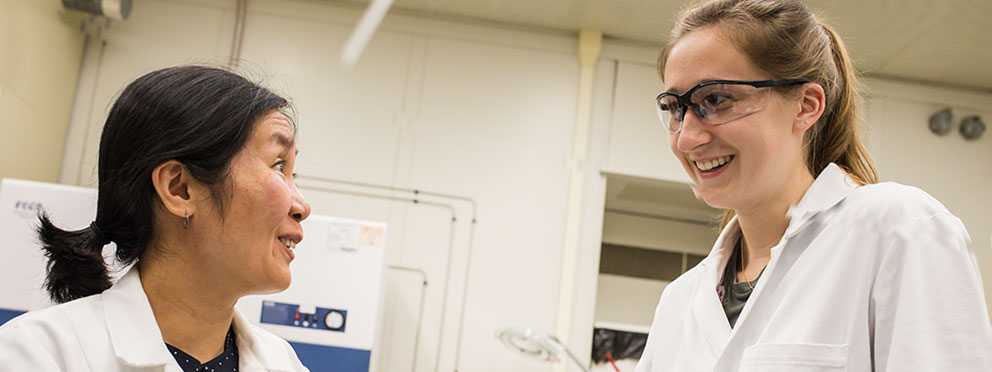Welcome to Lehigh Polymer Science and Engineering!

WHAT IS POLYMER SCIENCE & ENGINEERING?
Polymer science and engineering is an interdisciplinary field that integrates principles from engineering, chemistry, and physics to study polymers. Polymers are large molecules composed of chemically bonded repeat units called monomers. The unique molecular structure of polymers gives them remarkable versatility, enabling them to be easily processed and shaped into complex forms. As a result, polymers are used in a vast array of products and are produced in large quantities, making them essential to our everyday lives. | READ MORE >>

WHAT SETS US APART
The Polymer Science and Engineering (PSE) program at Lehigh University is an interdisciplinary graduate program within the P.C. Rossin College of Engineering and Applied Science. The program brings together faculty from departments such as chemical and biomolecular engineering, materials science and engineering, and mechanical engineering and mechanics, offering students a diverse and comprehensive curriculum. Established in 1975, the program has evolved over the years to keep pace with advancements in the polymer field, particularly in the development of new materials and techniques, as well as in the critical area of material sustainability.
PROGRAM & ADMISSION REQUIREMENTS
The PSE program at Lehigh offers degrees in:
- Master of Science
- Certificate
Application deadlines for each semester:
- Fall semester, July 15
- Spring semester, December 15
- Summer, April 1
For more information about the programs and admissions, click HERE.
JOIN US
Lehigh University’s Polymer Science and Engineering program is among the few in the United States specializing in this dynamic field. Whether you’re a recent college graduate or a seasoned professional seeking to deepen your expertise and earn a graduate degree, this program is designed to elevate your knowledge and advance your career in the polymer industry.






